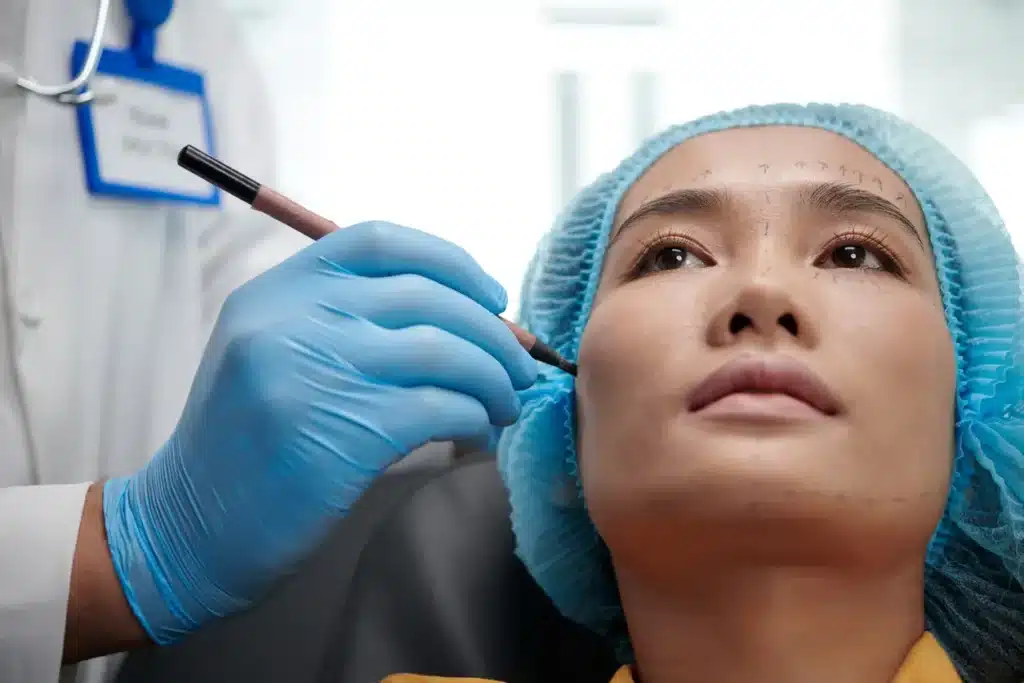
Story at-a-glance
- Plastic surgeons rely on hands, vision, and stamina—which are also their biggest risks.
- Even small injuries or burnout can end a surgical career, making strong disability insurance critical.
- Group coverage isn’t enough—it often excludes specialty protection and has low caps.
- True own-occupation policies ensure you get paid even if you can’t operate but can still work in another role.
- Lock in coverage early—before symptoms or diagnoses reduce your options.
As a plastic surgeon, your career is built on surgical precision, artistic judgment, and technical mastery. You’ve invested over a decade in training and hundreds of thousands of dollars into your education and practice. But all of that can be at risk if illness or injury prevents you from operating. Let’s break down disability insurance for plastic surgeons, the unique disability risks—and what you should look for in a policy that truly protects your future.
The Unique Risks Plastic Surgeons Face
Plastic surgery is one of the most technically demanding and hands-on specialties in medicine. Your hands, eyes, and stamina are your greatest assets—and they’re also the most vulnerable. Common disability causes in plastic surgery include:
Hand and Upper Extremity Injuries
Plastic surgery demands extreme dexterity and steadiness. Even minor nerve damage, arthritis, carpal tunnel syndrome, or tremors can end your ability to perform precise surgical procedures. Unlike other specialties, you can’t delegate your work—if your hands can’t perform, your practice stops.
Neck, Back, and Shoulder Conditions
Long hours in the OR in static or awkward positions take a toll over time. Many plastic surgeons suffer from cervical spine issues, rotator cuff injuries, and lower back pain that can limit or completely prevent surgical practice.
Visual Changes
Your ability to assess symmetry, perform fine sutures, and sculpt tissue relies on excellent visual acuity and depth perception. Small changes in eyesight—often correctable in daily life—can have career-ending implications for a plastic surgeon
Burnout and Mental Health Conditions
The high-pressure, high-expectation nature of aesthetic surgery contributes to chronic stress, anxiety, and burnout. Complications in elective procedures, patient dissatisfaction, and long hours can all erode mental well-being. Mental health issues are among the leading causes of long-term disability among physicians.
Why Group Disability Coverage Falls Short
Many plastic surgeons assume their hospital or employer-provided disability insurance will be enough—but that’s rarely the case. Group policies often include:
- An “any occupation” definition of disability
- Coverage caps that don’t match your earning potential
- Taxable benefits that reduce actual income replacement
- No portability if you move to private practice or change employers
What Plastic Surgeons Should Look for in Disability Insurance

True Own-Occupation Definition
This is essential. Look for a true own-occupation definition of disability that defines disability as the inability to perform the duties of your unique occupation, even if you’re able to work in another medical role. If you can’t operate—but could teach or consult—you’ll still be eligible receive full benefits.
Residual and Partial Disability Coverage
You may not go from 100% capacity to 0% overnight. A good policy should pay partial benefits if you’re working reduced hours or seeing fewer patients due to physical limitations
Top Financial Strength Ratings
Choose an insurer with a Comdex score of 90 or higher. Your disability policy may need to support you for decades—especially if you’re in your 30s or 40s when a disability occurs.
Key Policy Features
Smart plastic surgeons also look for:
- Cost-of-living adjustments (COLA) to preserve benefit value over time
- Future insurability options to increase coverage as your income grows
- Catastrophic disability riders for total loss of functional independence
Student loan riders for early-career surgeons with education debt
The Financial Reality of a Career-Ending Injury
A 38-year-old plastic surgeon earning $600,000 per year could lose over $15 million in future earnings if permanently disabled. Yet many hesitate to invest $300-$600 per month in a high-quality disability policy.
The truth? That premium is a small price to pay for peace of mind, knowing your lifestyle, family, and future are protected if the unexpected happens.
Don’t Wait Until It’s Too Late
The best time to secure disability insurance is before any symptoms or diagnoses emerge. Once you’ve developed a musculoskeletal issue or carpal tunnel, your options will be limited—or much more expensive. Lock in coverage while you’re healthy, and you’ll have it when you need it most.
Take it from Dr. Andrea Lopez, a board-certified plastic surgeon who insured herself in residency:
“I got disability coverage before I ever touched a scalpel in practice. I knew one injury could take it all away—and I didn’t want to leave my future to chance.”
Next Steps
Protect the career you’ve built with your hands. Request a personalized disability insurance quote comparison today. Our team specializes in physician-specific coverage and can guide you through options that safeguard your income and your surgical future. Get plastic surgeon disability insurance today.
Ready to protect your future?
Get a personalized side-by-side policy comparison of the leading disability insurance companies from an independent insurance broker.




